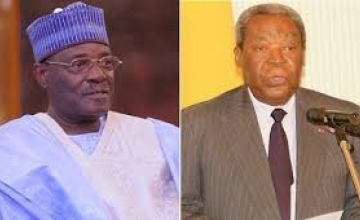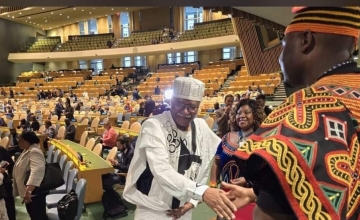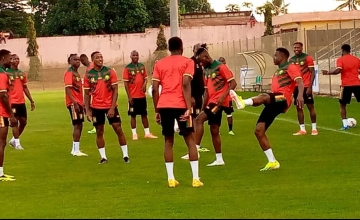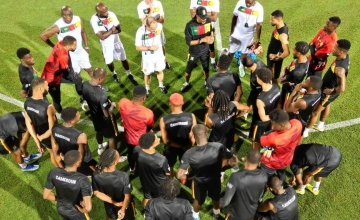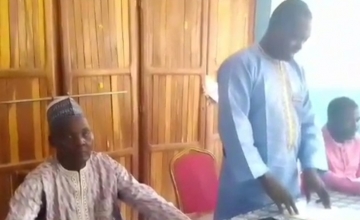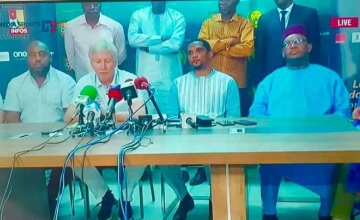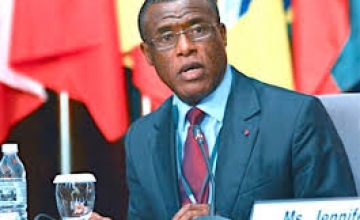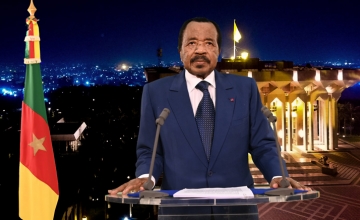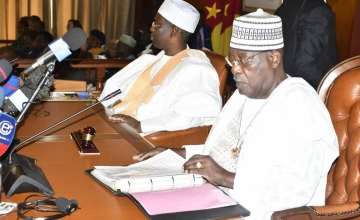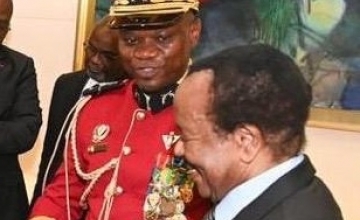
In an exclusive interview published in The SUN newspaper last week, the Vice-Chancellor hinted that Decision No. 2020/0326/UB/DVC/TIC/AcA/AA to terminate the contract of Agbor Balla as Instructor in the English Law Department, on grounds that he breached university guidelines when he set an exam question on the socio-political situation in Cameroon’s North West and South West Regions, could have been avoided.
The rights activist is said to have breached professional obligations when he set an exam question on the Anglophone Crisis in a first semester level one course titled “Political and Constitutional History of Cameroon”. The question read: “The Anglophone crisis since 2016 was caused by lawyers’ and teachers’ strikes. Assess the validity of this statement. (40 marks).”
Expected to enter appearance in defense, Agbor Balla rather sought the services of Sheriff-Bailiff Tapa Justin Lebrin to serve the Vice-Chancellor his “Appearance Under Protest”. In the four-page “protest”, Agbor Balla picked holes in the disciplinary hearing, positing that it fell short of due process.
Quizzed if Agbor Balla’s fate would have been different had he attended the disciplinary hearing, Prof. Ngomo’s response was in the affirmative.
Hear him: “Why not? Why not? Why do you think the panel was there? Think of it, in the panel we would have listened and cautioned him, we wanted to listen to him! There are several ways of communicating.
“We could have pointed out that ‘your questions should not wander into this area because you are a political actor, else people perceive it this way’…sure he would have told us ‘Okay, this is the way I looked at it etc etc’, and then we would have written to the Minister of State for Higher Education stating why we needed to keep him. The Minister was in his role to draw the attention of the Vice-Chancellor to this issue; what is missing and rightly so in the Minister’s letter, is the procedure to carry that out.
“The Minister himself is aware that the University has its procedure. So this issue has just taken undue publicity. If Agbor Nkongho had not taken this issue to the social Media, we would have understood that we are discussing between an institution and a very mature individual, I’m not saying he is immature, but I mean somebody who can exercise restraint and allow things take their natural course. There are things in the corridors that we don’t send out!
“There are things we call intimate discussions. Mr. Agbor Balla has never come and sat with me like this, even after that. There are teachers we should sanction severely but before we convene them to the disciplinary council, they come for self-explanation which permits us to go back and modify the charges.”
The Vice-Chancellor insists that the question Agbor Balla set is not allowed going by article 42 of the decree creating the University of Buea. The said article is characterised as the apolitical character of the University. He had these few words for human rights lawyer Agbor Balla:
“In asking students about the Anglophone crisis in its current form which is still undergoing debate, not yet resolved, what were you intending to achieve? What was your expected outcome? You are an actor in it! Probably you are trying to build a critical mass of support among the students in the university because after a few years, they can become your de facto; you could be building a political base for yourself.
“By that question, you are asking young, gullible and impressionable university students, to trace the history of the lawyers’ boycott of court and the teachers’ strike and how it rotated dangerously to the open armed conflict we have today and in the process, you will definitely ask students to share their arguments on the key roles all the actors played in the conflict.
“And our sense is that, you will want the students to give prominence to the role you played, as a key actor in the conflict! He was leader of the lawyers’ strike. And so we see somebody who wants to carve a place for himself in the history of this country! Please don’t get me wrong, I have nothing against that, that’s his privilege, that’s his prerogative, but he is using the narrative of students to give justification to that.
“And let me ask you that as a teacher, how will you correct that question? Because these are the arguments, because students were asked to give the role each of the actors played and the person asking this question was key to that event, he is not an innocent bystander, and don’t forget that the Anglophone crisis is an on-going political crisis not yet resolved, divisive and marred in partisan politics!”
Prof. Ngomo says elsewhere, such a question will not be very troubling but given the history of the University of Buea, the intent and purpose of such a question is suspicious. He adds that by making UB apolitical, the state seeks to isolate the University from anybody that will want to import political propaganda from the public space into the university.
Reacting to a similar question set by Dr. Abdoulaye Mfonka in a Political Science Masters Class at the University of Yaoundé II on the subject of the Anglophone crisis, which question did not attract sanctions, UB’s Vice-Chancellor said:
“Firstly, that individual is not a political actor, his views are not tainted by partisanship and what was the question because I have looked at those questions: The guy asked about ethnicity and nationalism, where he is making allusion to a particular virus that has plagued governance in Africa and he is inviting his students to see whether these elements were not the drivers of the Anglophone crisis, that’s my understanding of that question.
“And who says nationalism and ethnicity in African politics, he is referring to an international plague, without referring to any country particular. So that’s a valid question in Political Science and I look at it as something which has its merits in time and space because ethnicity and nationalism are longstanding problems, you will trace them even to the birth of our nations, that’s the way I look at it.”
On why Agbor Balla was singled out for punishment when he taught the course, Law 243, with two other colleagues, Prof. Ngomo said Agbor Balla is a political actor who brought a political debate from the public space into the University.
His words: “Well, we were looking at two things; number one is who set the question and what was the purpose of the question? The BMD system has this evaluation requirement; for a course to be approved by the APC (Academic Planning Committee) of the University it must respect certain quality assurance criteria, there must be the outcome, the course outline etc. Why was he singled out? Was that question set by three of them? The structure of the question can be very revealing of what was taught.
“That course might have been taught by three of them, but if he set and propose that question which he is not refusing, he alone will be held accountable”. The responsibility must lie somewhere!
“Well, the indictment is on grounds of that particular question. But one thing I want us to highlight is the context and the person. The person is a political actor, bringing a political debate from the public space into the University! It’s not the first time this is happening in any University, lecturers have been expelled from several Universities in this country, in universities purely with the Anglo Saxon tradition.”
On whether there is the possibility in the University of Buea that a single lecturer can set all questions in a course taught by three lecturers, Prof. Ngomo said “I wouldn’t know whether that was the case but what I know is that he is not refusing responsibility, that particular question was attributed to him and he hasn’t denied the fact.”
In reacting to claims that Agbor Balla’s invite to the disciplinary panel was served late, the Vice-Chancellor laughed and said: “He was not served the invitation on time but he found time to write that beautiful legal literature! Let me say that it’s not in the nature of the University of Buea to convene Instructors to a disciplinary panel, No! That was some kind of consideration we gave him, knowing that, like it or not, he is a public personality and on normal grounds, it is necessary to listen to anybody.
“We could have achieved that by just writing a Query letter and his response would constitute the outcome of the disciplinary panel. It was a gesture we thought we should do to him, not a practice. The university is grateful for his participation in teaching our students; we don’t have anything against him. Before this incident, I didn’t find anything to believe that he wasn’t doing his work well, so what we are talking about here is not some personal vendetta because we hear some literature in the social media talking about pre-planned, ordered by government issue.”

